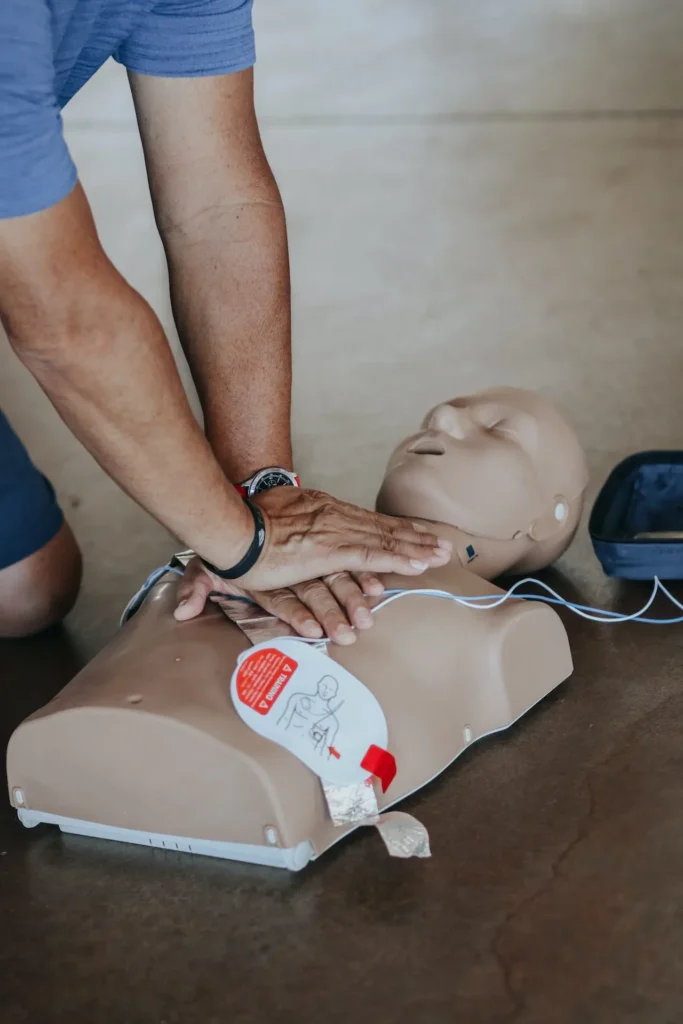
Last Updated On: January 6, 2025
Administering CPR (Cardiopulmonary Resuscitation) is an act of courage and compassion. It’s a life-saving technique intended to preserve life when someone experiences cardiac arrest, but unfortunately, the outcome isn’t always positive. This raises a common concern: What happens if the person you give CPR to dies? Understanding your responsibilities, the legal protections in place, and the emotional aspects involved can help alleviate these concerns and encourage you to act confidently in emergencies.
The reality of CPR is that survival rates are not as high as many people believe. According to studies:
The overall survival rate for out-of-hospital cardiac arrest is approximately 10-12%.
If CPR is administered immediately, the chances of survival can double or triple.
Survival rates are generally higher in settings where advanced medical care is quickly available, such as hospitals.
Despite these statistics, performing CPR gives the individual a chance they otherwise wouldn’t have had, making it a critical intervention.
CPR stands for Cardiopulmonary Resuscitation. It’s a way to help someone whose heart has stopped beating or who is unconscious. When someone performs CPR, they give chest compressions and breaths to the person in need. The goal of CPR is to help the person’s heart and lungs work again.
Good Samaritan laws protect individuals who act in good faith to help others in emergency situations, including performing CPR. These laws vary by state and country and typically offer legal protection from liability to individuals who provide reasonable assistance to those in need. It’s important to understand the Good Samaritan laws in your area and take a CPR certification course to ensure you act appropriately in emergency situations.
Sometimes, even if CPR is done correctly, the person doesn’t survive. If the victim dies during or after CPR, it’s important to remember that the person who performed CPR did everything they could to try and save them. If someone performs CPR and the person being helped doesn’t survive, it can be traumatizing for the individual who did the CPR. To relieve the trauma, they should talk to someone they trust, like a parent, teacher, or counselor, about their feelings.
Mastering CPR empowers you with the confidence to tackle any emergency. Here are some compelling reasons why obtaining a CPR certification is a valuable choice.
1. CPR certification teaches you how to save someone’s life if they are in danger.
2. You learn how to perform chest compressions, give rescue breaths, and use an automated external defibrillator (AED) if needed.
3. CPR certification is essential for many jobs, like lifeguards, teachers, and healthcare workers.
4. Knowing how to perform CPR can make you feel more confident and prepared in emergency situations.
5. If someone you love or care about ever needs CPR, you will know how to help them.
One of the best ways to feel more prepared and confident about performing CPR is through proper training. Certification courses teach you the techniques and steps involved, as well as how to handle various scenarios.
Skill Mastery: Knowing the correct procedure can improve the effectiveness of your response.
Increased Confidence: Training reduces hesitation and builds confidence in your ability to act during emergencies.
Legal Knowledge: Many courses also cover the legal protections for rescuers in your area.
Performing CPR is an act of bravery and kindness, undertaken with the hope of saving a life. While the outcome may not always be favorable, your willingness to step in and provide aid reflects a profound commitment to helping others. Legal protections, emotional support, and proper training can help you navigate the challenges and uncertainties associated with CPR. Remember, by performing CPR, you give someone their best chance at survival, and that effort is always worth it.

